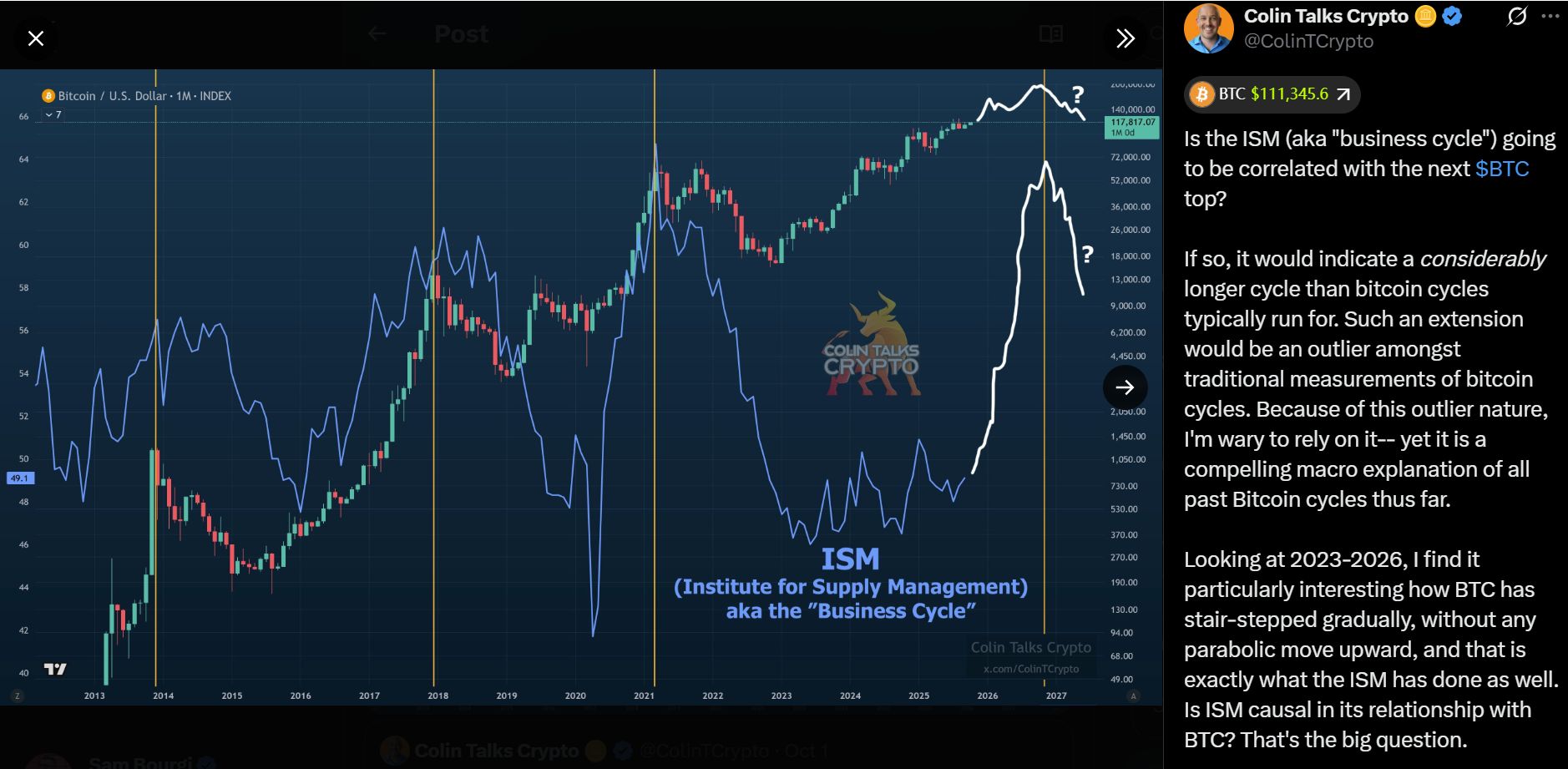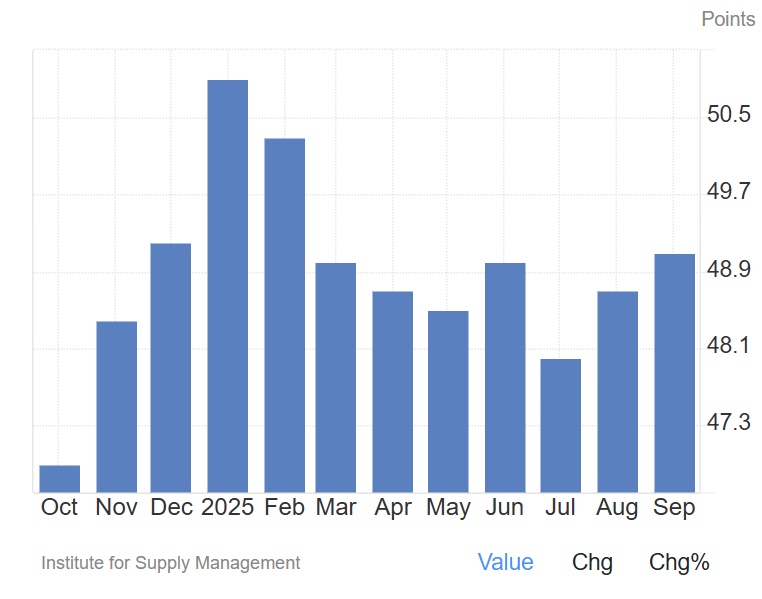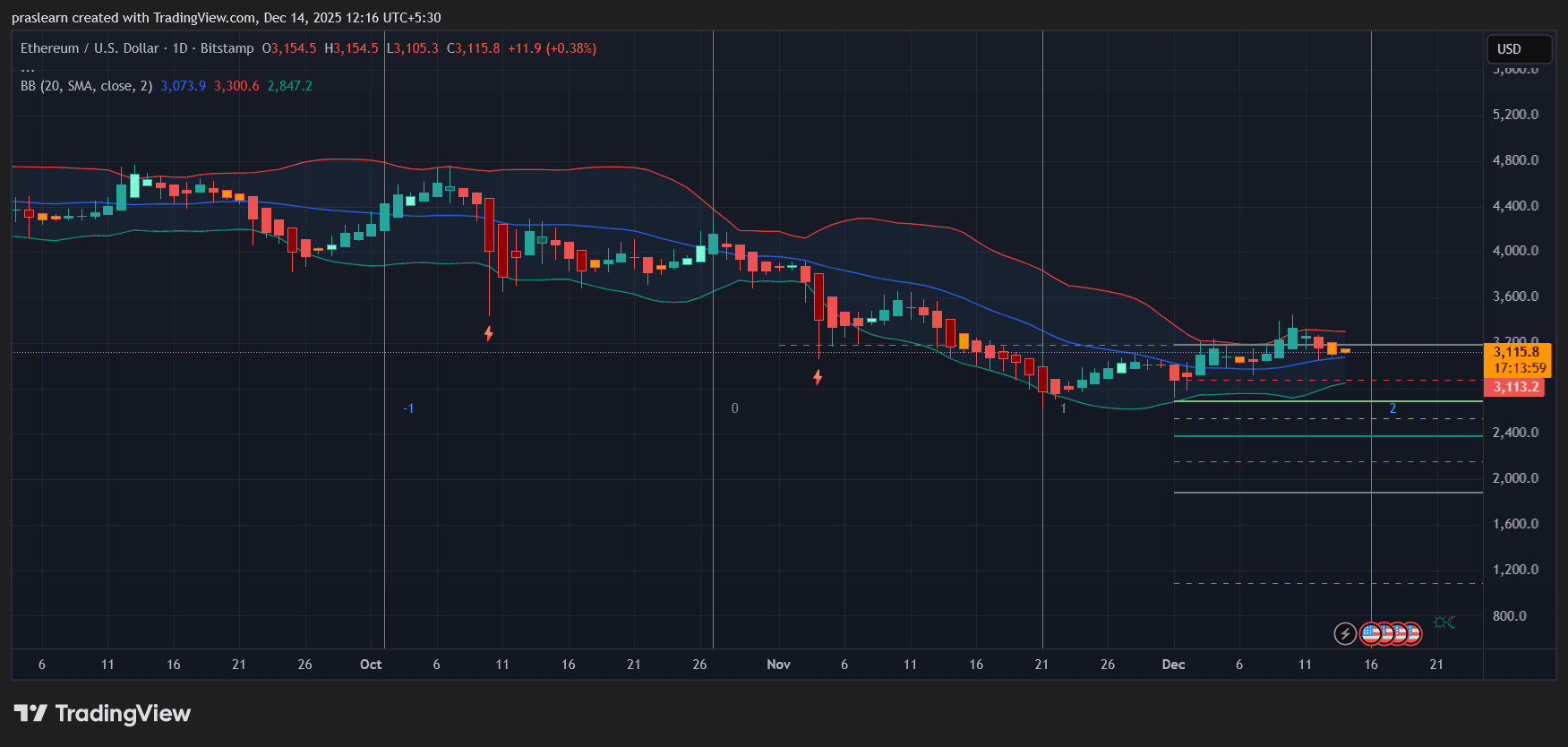ISM Manufacturing PMI suggests Bitcoin cycle may extend beyond historical norm
The Institute for Supply Management’s (ISM) Manufacturing Purchasing Managers’ Index (PMI) has historically aligned with major peaks in Bitcoin’s market cycles — a pattern that, if repeated, could imply a longer-than-usual cycle this time around.
The correlation between the ISM PMI and Bitcoin’s (BTC) price was first popularized by Real Vision’s Raoul Pal and has since gained traction among macro-focused crypto analysts.
“All 3 past Bitcoin cycle tops have broadly aligned with this monthly, oscillating index,” analyst Colin Talks Crypto noted, referencing the recurring overlap between Bitcoin’s market highs and the PMI’s cyclical peaks.
If that relationship holds, Colin added, “it would indicate a considerably longer cycle than bitcoin cycles typically run for.”

The ISM Manufacturing PMI, which measures US industrial activity, has remained below the neutral 50 mark for seven consecutive months, signaling contraction. A sustained move above 50 would suggest renewed economic expansion, historically associated with stronger Bitcoin price performance.
Earlier this year, the PMI briefly climbed above 50 before slipping back into contraction territory, underscoring continued weakness in the manufacturing economy.

Related: Bitcoin treasuries can earn more Bitcoin, says Willem Schroé
US manufacturing struggles to sustain momentum amid tariffs, weak demand
The manufacturing PMI signaled a strong rebound in business sentiment at the start of the year, partly attributed to optimism surrounding the incoming Trump administration and expectations of business-friendly policy.
However, the continued drag from high tariffs, uncertain trade policy and soft global demand has weighed on the sector, potentially extending the business cycle rather than accelerating it.
ISM’s latest report showed a modest uptick in September, with prices rising while exports and imports contracted, suggesting uneven conditions across manufacturing subsectors.
Despite the weakness, ISM noted that manufacturing’s shrinking share of US economic output means a contraction in the PMI does not necessarily signal a recession. ISM has previously observed that a sustained reading above 42.3 generally corresponds with growth in the broader economy.
One purchasing manager from the transportation equipment industry told ISM in September that “business continues to be severely depressed,” citing shrinking profits and “extreme taxes” in the form of tariffs that have raised costs across the supply chain.
“We have increased price pressures both to our inputs and customer outputs as companies are starting to pass on tariffs via surcharges, raising prices up to 20 percent,” they added.
Related: Crypto Biz: Bitcoin whales trade keys for comfort
Disclaimer: The content of this article solely reflects the author's opinion and does not represent the platform in any capacity. This article is not intended to serve as a reference for making investment decisions.
You may also like
Zcash Halving 2025: Effects on the Market, Investor Reactions, and Tactical Investment Prospects
- Zcash's 2025 halving reduces block rewards by 50%, tightening supply and reinforcing its deflationary model. - The event coincided with a 1,172% price surge, driven by institutional investments and growing shielded transaction adoption. - Institutional demand, including Grayscale and Cypherpunk's ZEC acquisitions, highlights Zcash's strategic value in privacy-focused crypto markets. - Regulatory risks under MiCA and short-term volatility remain concerns, but long-term projections suggest potential for $1

New Prospects in EdTech and Career Training: Fast-Expanding Academic Pathways Tailored to Meet Industry Demands
- Global higher education is reshaping curricula to align with AI, security, and green energy industry demands, creating high-growth career pathways. - AI programs see 45% annual enrollment growth (2020-2025), with graduates earning 56% higher wages than non-AI peers in fields like cybersecurity and data science. - Security programs address 750,000 U.S. cybersecurity job gaps through AI-driven threat detection, while wind energy training responds to 64% global wind power growth in 2025. - Institutions like

Will Fed Leadership Change Disrupt Ethereum’s 2026 Rally?

India’s Spinny set to secure $160 million in funding for GoMechanic acquisition, sources report
